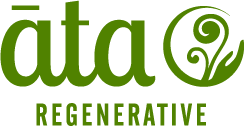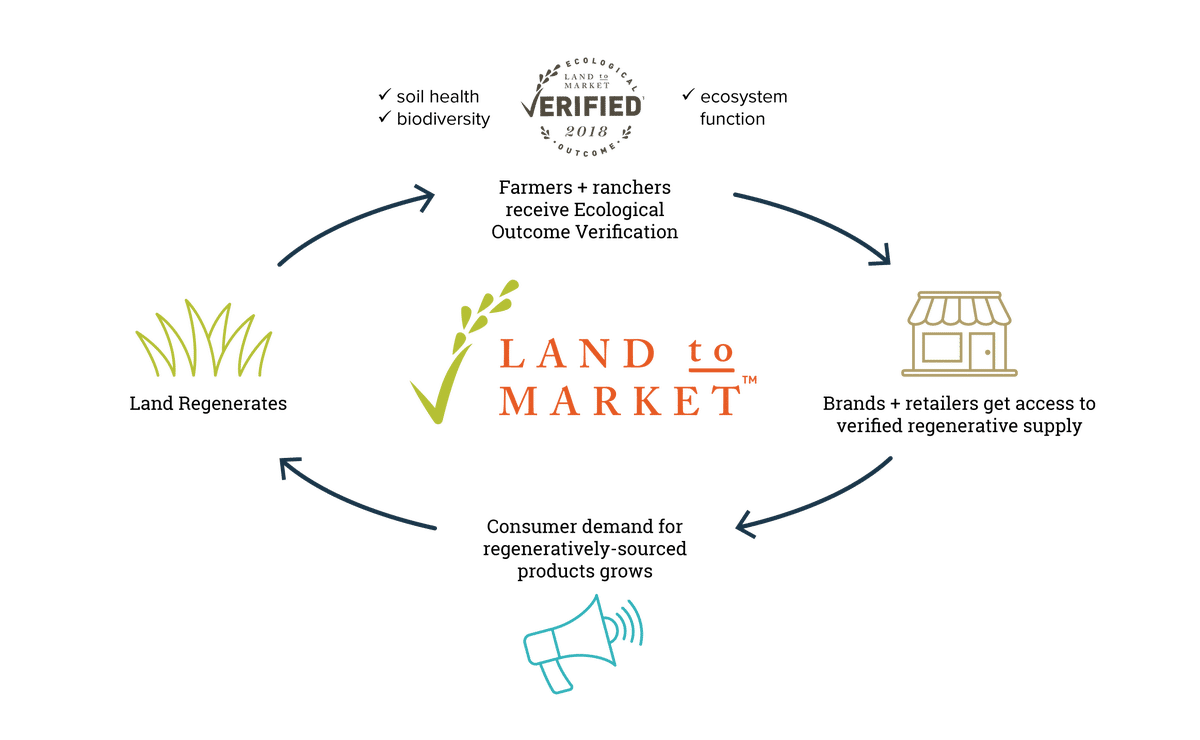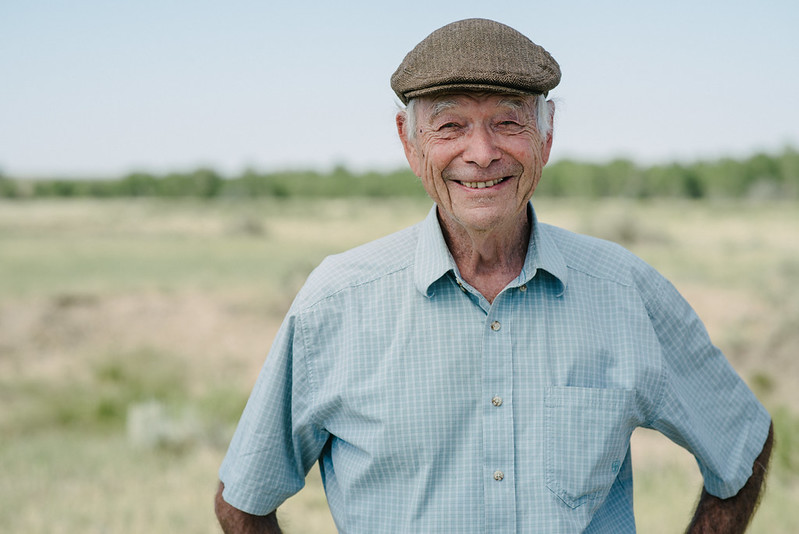It’s hard to believe here we are at the beginning of a new year again, and what a year 2020 was! The obvious dominant event of last year has been the COVID pandemic. It turned our world upside down and in doing so has challenged some of our realities especially the risks to our current supply chains and the impact of our current lifestyles on nature. Through lockdowns nationally and globally we saw both a break down in our food systems with shelves empty of essentials and a cleaning up of air and waterways due to a drop in consumption. It was amazing how quickly nature responded to the change.
While it is unrealistic to expect a permanent shift to the styles of life imposed on us through COVID enforced lockdowns, there were some salient lessons. It reinforced that we have a choice as to how we want to impact the health of selves and planet.
The other big event of 2020 has been the continued growth in interest around regenerative. It has become a buzz word and one that commerce is trying to ‘own’ for commercial gain, but what is regenerative, how can we be regenerative and how does it impact us?
Reflections from my lockdown
I find it amazing to see how peoples’ behaviour has changed already. Normally, when I run or ride my track in the morning I don’t see anyone – now it is always quite busy with people out early enjoying their own space with nature, time with each other, their kids or dogs. All through the day I see people out walking and most particularly parents and kids spending time out walking or riding.
We seemed to have moved to a different pace of life, we notice our neighbours – for the first time since we have been here, we are having organised events with neighbours, at a distance of course. Almost everyone smiles and says hi as you pass.
We are enjoying the lifting of the day to day pressures, the constant rush to be somewhere, do something, consume! And we appear to be better for it, so is the world. Reports from all over the world are documenting greater health – clearer waters and cleaner air.
Isn’t it obvious that we have been pushing resources beyond their ability to deliver and this has become our new normal? I’m not a conspiracy theorist and don’t think this is planned, but it is something that has evolved due to our loss of connection to land, food and each other. We have let convenience and capitalism become our yardsticks, but we haven’t realised how much we have given away in this extractive search for what? Wealth, possessions, happiness, health? Was society and the planet getting any better before this disruption? But now we have been made to stop we are experiencing this approach doesn’t deliver for us, there are consequences beyond what we could imagine.
While some of these consequences are obvious, there are many others which we might not yet connect. Climate, water, social equity, poor engagement in the work force, health, food nutritional quality. Yes these are all interconnected and in poor shape as unintended consequences of our current approach.
So let’s take this opportunity presented to us to stop. Let’s look at the opportunity this short reset has opened up. But if we are to make a sustained change we need to take a different approach. If we go back to the same system, we will go back to where we were – there is no future in this. This would be one of my favourite clips from the year.
Redesigning with regenerative principles
We need to redesign, but this redesign needs to be based on regenerative principles. Regenerative is living, the key difference about living systems over any other is that they have the ability to regenerate themselves and this ability does not come from any one place and does not require external inputs. The connections between the parts of the system support this ability.
Our current paradigm is intent on pulling these systems apart in the belief that we can better control the outcomes if we focus on parts not wholes. This is partially correct; we will get predictable outcomes but at the cost of the health of the system – this is not the way forward. We need to identify the whole and the interconnections that should be part of this whole. Decisions need to be made and policy set which include all involved as decision makers and create conditions for the health of the whole, not just a small part of it.
Stimulus packages for recovery from this disruption need to look at long term sustained regenerative change across multiple sectors. It appears this may not entirely be the case; some of the projects under discussion as potential projects for the future apparently had been shelved because they did not meet ecological and/or social compliance and are now being put back into consideration. It seems it is easier to change the law than redesign the project!
New Zealand has lost some key income potential through tourism and education and will look to agriculture to help fill this hole and bring us out of the likely recession we are heading for. Agriculture can do this, but the easy solution is just to increase commodity production of goods with more inputs and greater potential of harm to climate, water and animals.
I hope this is not the case and we consider ways to add greater value to product with better returns to producers and link to markets which value the New Zealand story, quality and point of difference. Again, let’s take this opportunity to create what we want agriculture to look like in New Zealand and redesign around these values. Signs to date are not good when we consider the response in lockdown where big business has prevailed and profited at the expense of small businesses throughout the country. Small businesses are the back bone of the NZ economy and in times of crisis as has been demonstrated by farmers throughout the country, they just knuckle down and get on with it and weather the drop in income. Our way forward must support these businesses.
Yes, we are under financial and time pressure, and we all want certainty that we will be OK. But this is a wicked and complex problem, effective solutions can not come from a linear or reductionist approach but must recognise the need for a different approach, one that is based on holism, equity, mutualism and is nodal and developmental. This may be our last chance to get this right and not leave out future generations with a long term ecological and economic debt.
When we reduce our soils to dirt, our people to parts, and societies to machines we kill the very life that sustains us. Tre’ Cates
 Ecological Outcome Verification and Land to Market
Ecological Outcome Verification and Land to Market
We have seen a large increase in the uptake of Holistic and regenerative management globally and domestically. As the Savory Global Hub for New Zealand we provide Ecological Outcome Verification (EOV) as a means of measuring the regenerative change of land. EOV provides producers with regenerating land the opportunity to sell produce through the Land to Market programme. The Land to Market programme links conscious consumers and brands with EOV produce.
Savory Global maintain a database of land recorded as regenerating by EOV and this is the largest data base of its type globally. Despite COVID, uptake of EOV has continued to grow and there are now 270 landbases onboarded for EOV covering 750,000 ha. New Zealand has played a significant part in this growth. Ata has now over 40 farms involved with continued growth booked over the growing season of 2020/21.
The Land to Market programme has also continued to grow. This group includes some of the biggest brands globally as Frontier Founders, all which recognise that their future lies in sourcing produce from land which is confirmed by EOV as regenerating. This year there have been two exciting additions to this group, Timberland and HD Wools. Both will help bring back the value to natural leathers and wools which is exciting for NZ. In addition to the role Ata plays in the Land to Market programme, Atkins Ranch, a company which sources all its lamb from its supplier base in East Coast North Island has also joined the Land to Market programme as a Frontier Founder.
Ata Regenerative will be bringing the Land to Market programme to New Zealand focusing on the NZ market early in 2021. This will link domestic consumers and produce outlets to farmers verified as regenerating their land by EOV. It will bring integrity to the regenerative supply chain.
Dr Hugh Jellie is the only Verifier in NZ accredited by the Savory Institute to bring farms onboard the EOV programme and he has just recently been invited to join the Global Master Verifiers group which sets and reviews policy and procedure. Gwen Grelet of Landcare Research and Prof. Pablo Gregorini of Lincoln are members of the scientific advisory group for EOV along with other invited preeminent scientist globally. So as in many fields, New Zealand is punching above it’s weight.
 Partnerships
Partnerships
In addition to our partnership with Savory Global as the Savory Hub in NZ, Ata has a strong and active partnership with nRhythm. Our partnership with Savory is focused on regenerating land; the partnership with nRhythm, regenerating social systems. Both are critical to the long term future economic and social health.
Ata Regenerative also has a partnership with Lincoln University Centre of Excellence; Future Productive Landscapes through an MOU, and is working closely with Prof Pablo Gregorini and his team to better understand how a regenerative design approach to agriculture can help our productive future.
Projects
There are two key projects we started in 2020.
- Transforming the Southern Waikato Region to Healthy, Vibrant and Resilient Communities through a Regenerative Cross-Sectoral Collaboration.
We try and resolve broad societal issues by isolating and focusing on parts. This has not worked and we need to bring a different approach, one that involves all sectors in a design process which is about collaboration and health of the whole.
- The Chatham Islands Project. Working with the Hoketehi Moriori Trust to help restore the Moriori, culture, land and people.
Training
Together with our partners nRhythm, Ata has conducted a series of webinars, workshops and Labs to help individuals, farmers and organisations better understand regenerative and how it can be applied in context. These have been well supported and will continue through 2021.
Ata and Savory have also run webinars on the Land to Market programme and EOV. There is free access to all webinars on our website.
As interest in EOV in New Zealand grows, we need more resources to support the farmers looking to get involved. Ata ran the first training course for EOV Monitors in November. More courses are planned for 2021. We will also be running training courses for advisors and coaches looking to gain Savory Global accreditation.
My picks for the year
My favorite read this year has been Charles Massy’s ‘Call of the Reed Warbler’ – a wonderful history of farming in Australia and the impact of industrialised farming and the individual story of Charles Massy. He realised there was no future in the industrialised model and set out to prove it, both to himself and to all.
I also recommend Nicole Master’s book ‘For the Love of Soil’. A great practical guide to how we can farm to heal our soils.
I always keep Allan Savory and Jody Butterfield’s Holistic Management pretty close as a constant reference.
Best watch was ‘Kiss the Ground’. A well presented and easy to understand explanation of our impact on soils and the need for a change in paradigm.
I look forward to continuing to help you design a regenerative future for the health and abundance of your families, farms and organisations. I wish you all health and happiness for 2021
“We abuse land because we regard it as a commodity belonging to us. When we see land as a community to which we belong, we may begin to use it with love and respect.” Aldo Leopold
Ata Regenerative are at the forefront of regenerative agriculture practice in New Zealand. With 17 years working in the regenerative space and as the Savory Hub for NZ, Ata Regenerative is the only certified Ecological Outcome Verification provider in New Zealand. Ata Regenerative can assist with your transition to farm practice that focuses on the regeneration of soils, increased productivity and biological diversity, as well as economic and social well-being. To find out more, contact us here.




 Ecological Outcome Verification and Land to Market
Ecological Outcome Verification and Land to Market Partnerships
Partnerships